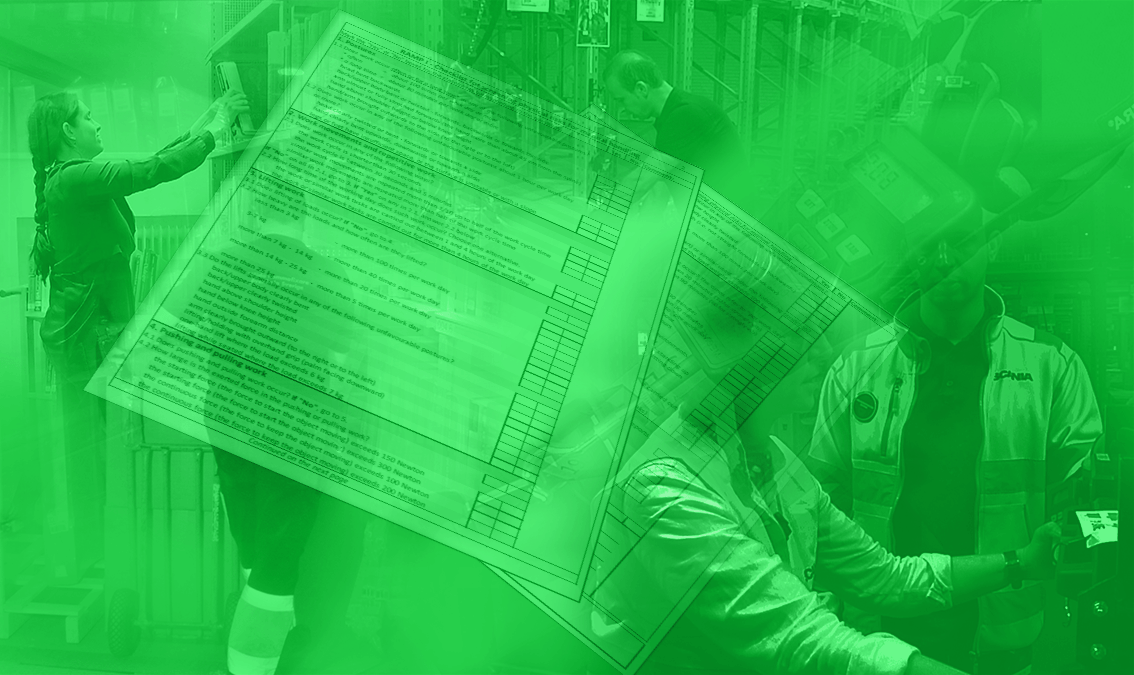Health & Risk Management
- Course Schedule and Run Dates
- Assessment of Work-Related Injury Risks using RAMP I
- Risk Management of Work-Related Injuries using RAMP II
- Proficiency in using RAMP for Risk Management of Work-Related Injuries
Course Schedule and Run Dates
For more information: https://www.ramp.proj.kth.se/se/courses-on-the-ramp-tool-1.731777
Assessment of Work-Related Injury Risks using RAMP I

Assessment of Work-Related Injury Risks using RAMP I
About This Course
Musculoskeletal disorders (MSDs) are one of the most common reasons for absence from work today. Millions of workers around the world suffer from MSDs, which also lead to reduced productivity and quality losses at companies, and to increased medical costs and reduced Gross National Product for societies. Do you want to change this and improve work environments? KTH offers a program with three courses about the RAMP tool. Taking these courses enables you to take the lead on creating sustainable working life.
In RAMP Course 1: Assessment of Work-Related Injury Risks using RAMP I, you get an overview of the entire RAMP tool and you learn to identify and assess MSD risks using the RAMP tool’s first module, RAMP I.
This is the first of three courses where you will learn how to apply the whole MSD risk management process, from risk identification and risk assessment, to concrete action plans and follow-ups. These courses are taken online, are self-paced and are free of charge. You can choose to study each course separately. Everyone is welcome to register, and no specific prerequisites are required.
Teacher: Linda Rose
Risk Management of Work-Related Injuries using RAMP II

Risk Management of Work-Related Injuries using RAMP II
About This Course
Musculoskeletal disorders (MSDs) are one of the most common reasons for absence from work today. Millions of workers around the world suffer from MSDs, which also lead to reduced productivity and quality losses at companies, and to increased medical costs and reduced Gross National Product for societies. Do you want to change this and improve work environments? KTH offers a program with three courses about the RAMP tool. Taking these courses enables you to take the lead on creating sustainable working life.
In RAMP Course 2: Risk Management of Work-Related Injuries using RAMP II, you learn to use all four modules in the RAMP tool, intended to manage musculoskeletal (MSD) risks. This includes, for example, how to present results from risk assessments for different stakeholders within an organisation and how you create action plans for improvement.
This is the second of three courses where you will learn how to apply the whole MSD risk management process, from risk identification and risk assessment, to concrete action plans and follow-ups. These courses are taken online, are self-paced and are free of charge. You can choose to study each course separately. Everyone is welcome to register and no specific prerequisites are required.
Teacher: Linda Rose
Proficiency in using RAMP for Risk Management of Work-Related Injuries

Proficiency in using RAMP for Risk Management of Work-Related Injuries
About This Course
Musculoskeletal disorders (MSDs) are one of the most common reasons for absence from work today. Millions of workers around the world suffer from MSDs, which also lead to reduced productivity and quality losses at companies, and to increased medical costs and reduced Gross National Product for societies. Do you want to change this and improve work environments? KTH offers a program with three courses about the RAMP tool. Taking these courses enables you to take the lead on creating sustainable working life.
In RAMP Course 3: Proficiency in using RAMP for Risk Management of Work-Related Injuries, you practice using all four modules in the RAMP tool, intended to manage musculoskeletal (MSD) risks. You become skilled in managing the whole risk management process and you will work with authentic cases from the business community.
This is the third of three courses where you will learn how to apply the whole MSD risk management process, from risk identification and risk assessment, to concrete action plans and follow-ups. These courses are taken online, are self-paced and are free of charge. You can choose to study each course separately. Everyone is welcome to register and no specific prerequisites are required.
Teacher: Linda Rose